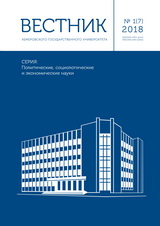Economic development in its territorial aspect is uneven, which increases in time due to the path depend-ence effect. At the same time, development level of territories is sensitive to macroeconomic and global factors, including the genesis of so-called “knowledge-based economy”. The article contains an analysis of Russian’s knowledge-based economy at the mesoeconomic (regional) level in 2005 – 2015 in the Kemerovo region. The au-thor evaluates the key parameters of Russian Federation subjects’ development, including regional systems of innovation and education, ICT-infrastructure and environmental conditions of life. The study has proved that the back-ground of the knowledge-based economy in Russia (ICTs and ecological and health-saving infrastructures) displays a tendency toward convergence, whereas the core of knowledge-based economy (educational and innovation sys-tems) is characterized by a divergent trend. The differentiation of educational systems in Russian regions increased within the 10-year period, which means that the options for peripheral regions to shift to the knowledge-intensive development are steadily declining. The gap between leaders and outsiders (a vast majority of regions) of regional innovation system’s development is maximal. The author concludes that the conservation of liberal-orientated meso-economic policy in Russia will contribute to the shaping of an asymmetrical model of the knowledge-based economy.
knowledgebased economy, region, differentiation, quantitative analysis, index, Kemerovo Region

















